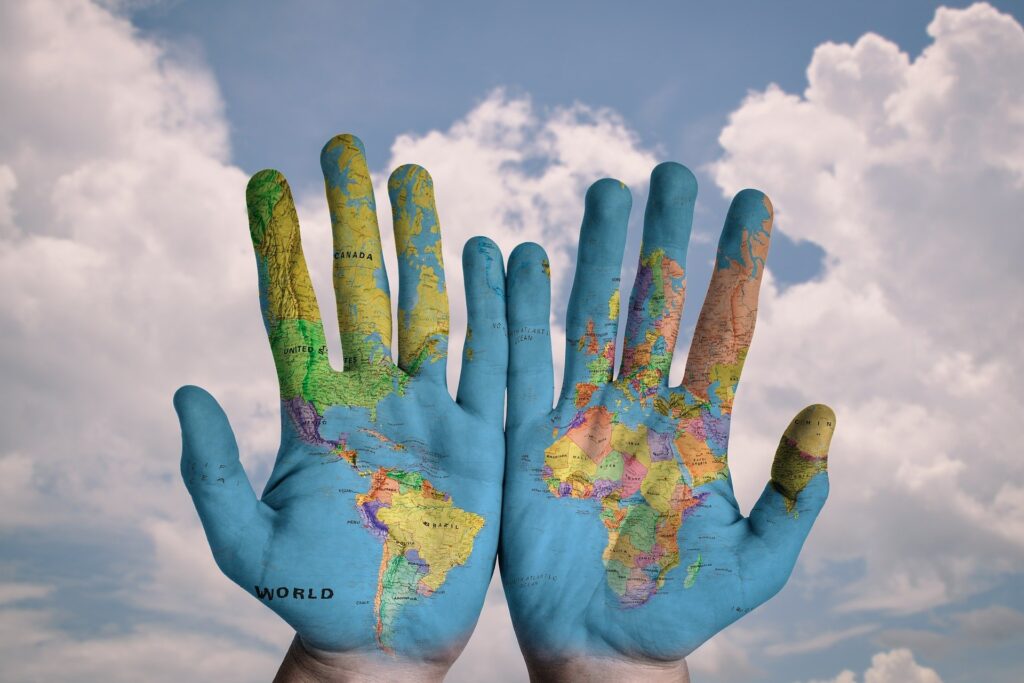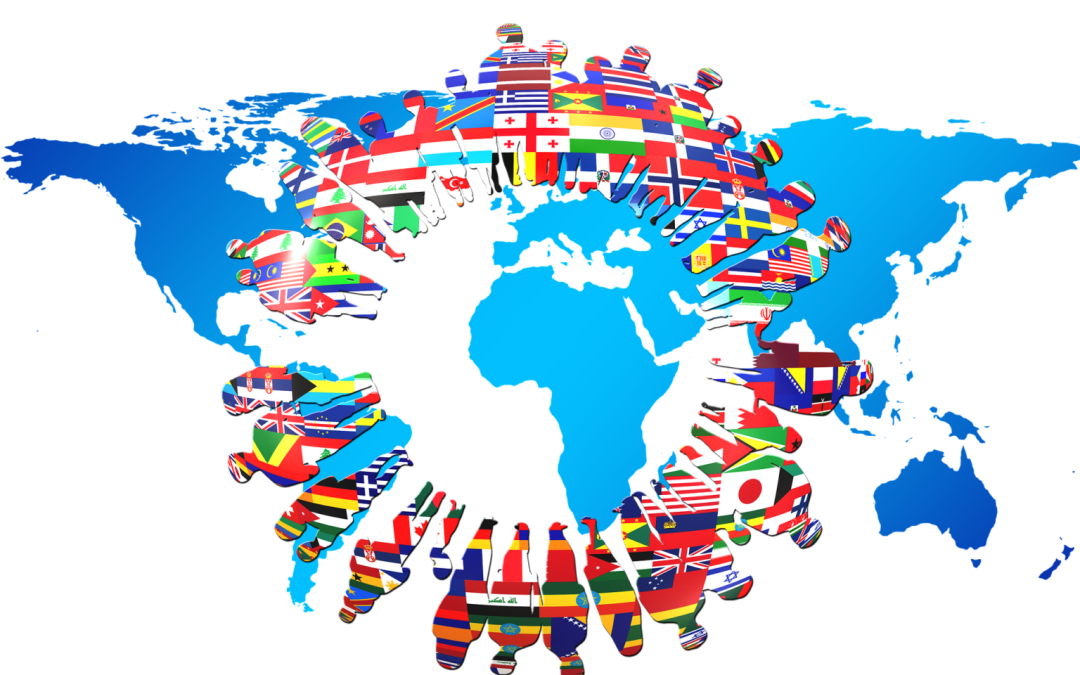We live in a world where the human being is not limited to a specific geographical area and the concept of localization strategy is nothing new anymore. The phenomenon of globalization has gained its momentum due to the development of technologies and customers around the world expect not just to have access to a variety of on-demand goods and information, but also to have them in their native language.
If in the past the best way to satisfy the worldwide customers was standardization from start to finish, nowadays it is kept only at the level of execution processes. From the communication point of view, however, if you want to conquer a global market, you will have to adapt to different local markets. Just translating content or an app from one language into another is no longer enough. You must be prepared to provide global users with tailored local experiences through marketing localization.
How can you do this? One method is localization. This concept admits that consumers have different values, traditions, cultures, languages, and dialects that are shaped by the geographical region they live in. Localization is not a synonym and does not replace translation, but it completes and adds a touch of authenticity to this service. Of course, translators are a critical component of every localization project, but the process means more than replacing phrases and texts from one language with the other.
According to the Can’t Read, Won’t Buy research series, customers prefer to make purchasing decisions in their native language. In fact,
- 40% won’t buy in another language,
- 65% prefer content in their native language,
- 73% want reviews of products in their language,
- 75% of respondents want product information in their native language.
It’s no wonder that many global companies decided to take their localization processes very seriously and augment their brands with local elements to attract clients.
Here are the key 5 benefits of localization in business in 2021:
- Easiness to entry into new markets and better connection with customers
- Increased revenue
- Increased business credibility and builds brand loyalty
- Competitive edge
- Enhanced visibility in local search
Localization reduces the barrier to entry into a completely new market and helps you to better connect with customers
Localization vs globalization is not a new debate. Yet, when you want to get clients in a foreign country or expand your business globally, you will find that you face a few barriers. Regardless of the product or service you offer. Legal issues due to different legislations, logistical obstacles, as well as challenges caused by linguistic and cultural differences can slow you down or even block you permanently.
Although localization cannot completely remove all these problems, at least it will help you overcome communication obstacles, which can affect both your brand image and your sales. If you plan your localization strategy in the right way, your business gains a new market much faster. Besides, when done correctly, embarrassing translation mistakes will no longer be a problem.
A great example is Coca-Cola, which is known as Kekoukele in China. And this is because the original name translated into Chinese meant “female horse fastened with wax” or “bite the wax tadpole”, both being inappropriate and offending. So, as part of Coca-Cola’s global strategy, the brand had to adapt to the local market, starting with its own name. They chose to be known as the Kekoukele label, because it means “tasty fun”, being close to the original name.

This strategy dramatically changed Coca-Cola’s image in the Chinese market and helped the company connect with locals in a more appropriate and personalized way.
Localization strategy helps you to increase revenue
Every culture has different values and norms and like it or not, you should be able to adopt them if you want to expand your business in a specific region. A bigger target market translates into a great potential for more revenue. So, if you develop and implement an effective localization strategy, you’ll also be able to see an increase in your income.
In fact, providing personalized localization brings extremely high benefits that play a critical role in the way people relate to and perceive a brand. According to some research, only 25.3% of the global population is using English to surf the internet. This means that if the content on your website, mobile and web apps, and other communication materials is not translated and localized in clients’ native language, then you’ll lose a big number of potential customers.
According to other studies, businesses that localize their content are twice likely to grow their revenue and have 125% more chances to increase their earnings year-over-year.
Magnify business credibility and builds brand loyalty
Nelson Mandela said:
“If you talk to a man in a language he understands, that goes to his head. If you talk to him in his language that goes to his heart.”
And for sure he was right. If:
- you provide your clients with an excellent user experience
- they’ll feel that you’ve taken the time to research their wants and needs
- and you did your best to find a way to communicate in their language and not just presented them with a one-size-fits-all translation,
then your brand will go to their hearts.
You’ll start to gain their trust, which is essential for brand loyalty and they are likely to stick around to become true advocates of your product(s) and/or service(s).
At the end of the day, people will not buy a product or a service or even download an app or a game if they don’t know what they’re spending money for. Seems logical, doesn’t it? Having a localization strategy and providing personalized experiences is a foolproof way to push your organization’s global expansion.
Stand Out From Your Competitors

Assuming you have a monopoly on the market, you would be in a more than happy (and absolutely unique) situation of not being forced to compete with other businesses to attract your customers. However, we can say with certainty that this is not the case now, especially since the COVID-19 pandemic has accelerated digitization by more than 10 years.
Countless companies are looking for new customers around the world and competition against them can be tough. But going up against local businesses is even tougher, as they can gain the trust of an audience much easier than an external player.
If you localize your content, then half the battle is already done. Whether it’s your app, product, or marketing materials, the more tailored they are to your customers, the more competitive you’ll be over similar businesses. Seeing familiar imagery and graphics, reading content and messages that are relevant to them and match with their beliefs increases trust and makes them more likely to buy.
Localization helps enhance your local SEO
Even if you are not a marketing or SEO expert, you are aware (in one way or another) that more informative content which also matches people’s search intent ranks higher in Google’s search results.
Creating new content requires a significant investment of time – and most marketers and business writers say they’ve spent an average of one to six hours per piece. Under these conditions, translating your texts into other languages can bring a major SEO boost to your website, because search engines see these translations as unique content. This is good news and proves the importance of localization in business.
The bad news? When a German-speaking home-buyer wants to buy a property in the USA and Googles “Immobilien New York” but the website of your real estate agency is just in English, guess what? This user will not land on your web page through search.
Don’t imagine you can only get away with using a free online tool to translate content. As your goal is to improve your ranking in Google search results, content must be translated and adapted having the target audience in your mind. And even though artificial intelligence has developed greatly in recent years, it still cannot interpret things with the finesse and accuracy that only the human mind can do.
What’s Next?

Ambitious globalization plans fail when they are not accompanied by effective localization strategies. If you don’t pay attention to the cultural and social preferences of other target audiences, you may risk doing things that bother your potential customers. If the actions of your brand irritate consumers (such as the failure to convert the price into local currency or to translate the instructions for using the application into the native language of users), then they are very likely to opt for your competition’s products and services.
Trying to capture an international audience? An efficient localization strategy is a key to expanding your business, increasing your revenue, and becoming a global brand. Learn more about how SandVox can help you pave the way for global growth or book a free consultation to see what localization solutions we offer.






